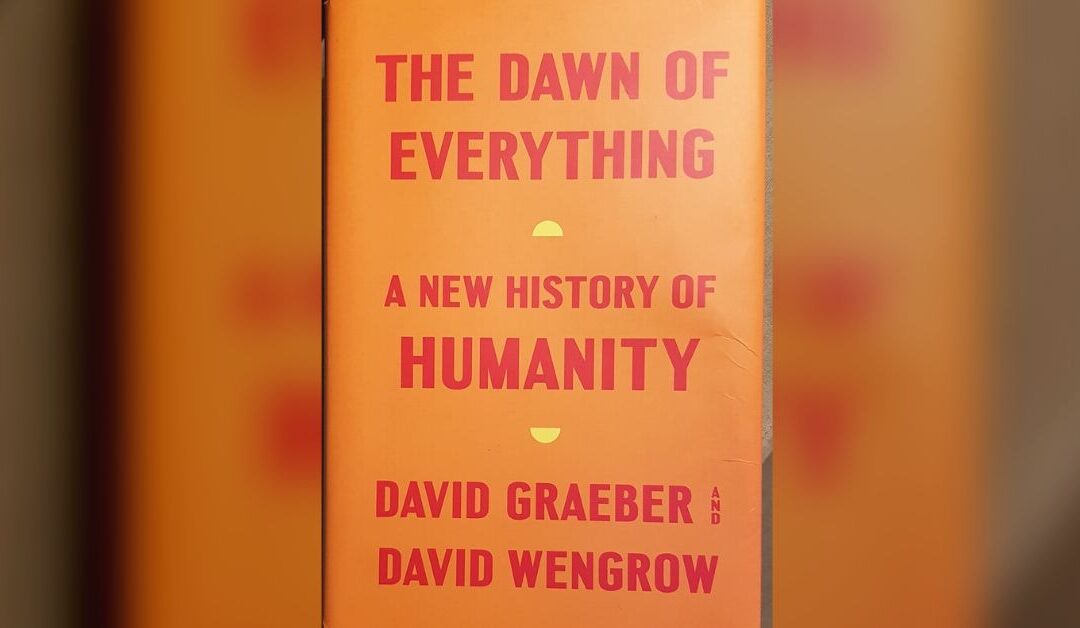What Graeber & Wengrow Have to Say to Salmon Nation as it Faces Responding to the Climate Crisis.
Published in 2021, during the throes of the pandemic, Graeber and Wengrow’s The Dawn of Everything: A New History of Humanity usurps our widely accepted notions about the evolution of society, still largely based on the ideas of Rousseau and Hobbes. If we take seriously that part of our task on the Northwest coast is to create society anew for the generations that follow, these are voices we may want to listen to.
Based on the archeological evidence of the past 100 years and on some new thinking in the field of anthropology, Graeber and Wengrow paint a rich and variegated picture of humanity’s historical journey. Rather than unilaterally falling from an innocent state of grace living in small, egalitarian hunter gather groups, as Rousseau would have it or progressing from the constant state of unease of a violent struggle for dominance, as Hobbes would have it and inevitably moving on to an agricultural revolution featuring mutiple forms of hierarchy and bureaucracy, the history of humanity is a story of constantly thoughtful and experimenting communities over thousands of years.
We have been creating and re-creating a wide range of ways of living together, sometimes even changing social organization according to the season, sometimes shifting from hunter gatherers to farmers and back again, trying on different types of governance, sometimes going down hideous blind alleys, then turning back, sometimes living in more benign and enlightened states for hundreds of years, then forgetting how we went about it.
The story that is often told as history emphasizes some of our more spectacular and foolish epochs leaving out thousands of years of more quiet and peaceful co-existence. Perhaps, it is this under-told story that we need to pay more attention to.
Read articles on climate change, sustainability, education, and more from GTEC’s Communication & Media (formally GTEC Blog)!

